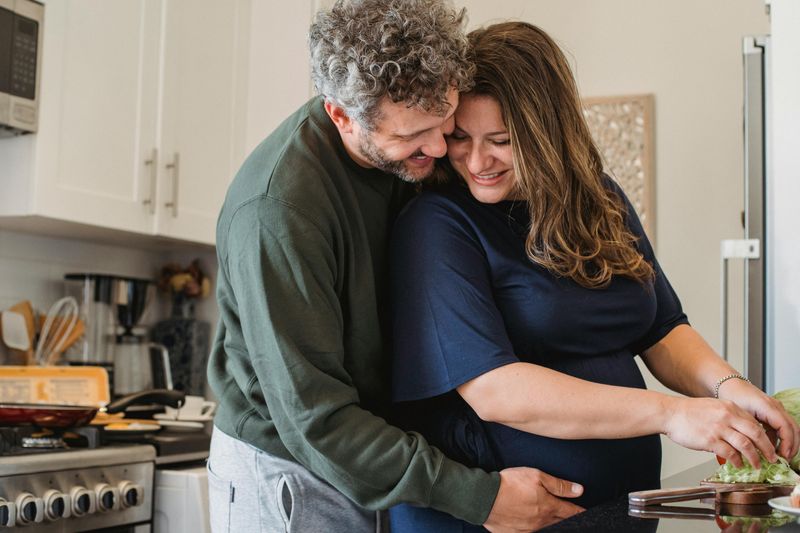Getting married after 50 isn’t what it used to be. With longer lifespans and changing social norms, love and partnership in our golden years looks different today than ever before. Many outdated ideas about senior marriages continue to circulate, creating unnecessary worries for those considering tying the knot later in life. Let’s bust some common myths that might be holding you back from finding happiness.
1. Romance Fades With Age
Passion doesn’t have an expiration date! Many couples report their intimate lives actually improve after 50 when career pressures ease and children leave home.
With greater self-confidence and fewer distractions, partners often discover new depths to their physical and emotional connection. Many find they communicate more honestly about desires and needs.
Studies show that couples who marry after 50 frequently enjoy satisfying romantic relationships because they’ve developed better communication skills and know themselves better. The romance might look different than in your 20s, but many find it’s deeper and more meaningful.
2. It’s Too Late For A Fresh Start
Starting anew at 50+ can actually be ideal timing. With decades of life experience, you bring wisdom and perspective that younger couples often lack.
Many who marry later report feeling more confident in their choices and clearer about what they want in a partner. Free from biological clocks and often with established careers, decisions can be made from desire rather than necessity.
Research indicates marriages that begin after 50 often have strong foundations because both people have developed independent lives and choose partnership deliberately. Your life chapters after 50 can be the most rewarding of all.
3. Financial Complications Make It Impractical
Money matters don’t have to be dealbreakers. While blending finances later in life presents unique considerations, many couples find workable solutions through open communication and planning.
Prenuptial agreements have lost their stigma and now represent smart planning rather than lack of commitment. Many couples maintain separate accounts for inheritances while sharing daily expenses.
Financial advisors specializing in later-life marriages can help navigate Social Security benefits, pension rights, and estate planning. With proper preparation, money issues can strengthen rather than undermine your partnership as you work together toward common goals.
4. Adult Children Will Resent A New Spouse
Family blending can actually be smoother when children are grown. Adult children often want their parents’ happiness above all else, especially after seeing them navigate single life or unhappy relationships.
The key lies in respectful introduction timing and avoiding replacement of family traditions. Many adult children report relief seeing their parent with a loving partner who provides companionship and support.
Clear communication about inheritance plans and family roles helps prevent misunderstandings. Most families find their circle simply expands with new relationships and connections that enrich everyone’s lives when given time to develop naturally.
5. Marriage Benefits Diminish With Age
Health advantages of marriage actually increase as we age. Research consistently shows married people over 50 experience better health outcomes, faster recovery from illness, and longer lifespans than their single counterparts.
Having a partner who notices health changes and encourages medical care makes a significant difference. Married couples tend to maintain better nutrition and medication adherence while experiencing less depression and isolation.
Financial security often improves through shared housing costs and combined resources. The emotional support of marriage provides a powerful buffer against age-related challenges, creating resilience that single people must work harder to develop.
6. You’re Too Set In Your Ways
Adaptability doesn’t disappear with age! Many people actually become more flexible after 50 as they’ve weathered life’s changes and learned compromise through decades of relationships.
Experience teaches the difference between core values and mere preferences. Partners who’ve lived full lives often bring greater patience and perspective to minor disagreements that might derail younger couples.
Many later-life newlyweds report surprise at how naturally they adapt to shared living. The motivation to make things work combined with clearer communication skills developed over decades creates a solid foundation for successful adjustments to new routines and habits.
7. Caregiving Will Inevitably Burden One Partner
Modern marriages approach potential caregiving with planning and resources unavailable to previous generations. Many couples proactively discuss care preferences and insurance options before health issues arise.
Today’s seniors access support systems including home health services, community programs, and family care networks that share responsibilities. Technology has revolutionized monitoring and communication, allowing partners to maintain independence longer.
Many couples report caregiving, when approached as a team with appropriate support, actually deepens their connection rather than straining it. Planning ahead transforms potential burdens into manageable chapters of your relationship journey that honor your commitment to each other.
8. Companionship Is The Only Reason To Marry
Later-life marriages offer far more than just companionship. Many couples discover profound personal growth through their partnership, finding new interests and aspects of themselves they never knew existed.
Shared goals take on new meaning – whether traveling the world, volunteering together, or supporting grandchildren. Financial stability often improves through combined resources, allowing for lifestyle options neither could achieve alone.
Legal protections provided by marriage become increasingly important with age, including hospital visitation rights and inheritance benefits. Many report their later-life marriage brings unexpected joy, adventure, and purpose that transcends simple companionship to become the most fulfilling relationship of their lives.
9. Wedding Celebrations Should Be Modest
Who says second or later marriages deserve less celebration? Many couples find their mature wedding becomes one of life’s most joyous occasions precisely because they fully appreciate its significance.
Family and friends often travel great distances to witness these meaningful unions. With financial independence and clear priorities, many couples create exactly the celebration they want without parental expectations or social pressures.
From intimate gatherings to grand affairs, today’s 50+ weddings reflect the couple’s authentic style. These celebrations often become powerful family reunions bringing together extended networks from both lives, creating beautiful memories and marking the beginning of an exciting new chapter worth every bit of fanfare.
10. Living Together Is The Same As Marriage
Legal marriage provides protections cohabitation simply cannot match, especially as we age. Without marriage, partners may be denied hospital visitation, medical decision-making rights, or inheritance benefits regardless of relationship length.
Social Security benefits and pension rights often depend on legal marital status. Many discover the hard way that “common law” protections are limited or nonexistent in most states.
Beyond practical matters, many couples report marriage creates a different psychological commitment. The public declaration and legal binding create security that enhances the relationship quality. When facing health challenges or family conflicts, marriage provides recognized status that cohabitation may not.
11. Intimate Compatibility Matters Less Now
Physical intimacy remains a vital part of relationships regardless of age. Many couples discover their intimate connection actually improves after 50 as they communicate more openly about desires and focus on quality over performance.
With fewer distractions and greater emotional maturity, many find deeper satisfaction in physical connection. Health challenges may require adaptations, but creativity and communication often lead to fulfilling intimacy.
Relationship experts note intimate compatibility contributes significantly to relationship satisfaction at all ages. Many later-life newlyweds report surprise at the importance and joy of this aspect of their marriage, finding physical intimacy creates bonding and wellbeing that enhances all aspects of their relationship.
12. You Should Settle Before It’s Too Late
Finding love after 50 doesn’t mean lowering your standards. With life experience comes clarity about what truly matters in a partner versus superficial qualities that might have seemed important in youth.
Many report their later relationships are actually more fulfilling precisely because they waited for the right match rather than settling. Dating services specifically for seniors have expanded the pool of potential partners beyond local social circles.
The freedom from biological clocks and career-building pressures allows choices based on genuine compatibility. Many who married after careful selection in their 50s or beyond report these relationships surpass earlier partnerships in satisfaction and longevity because they chose from wisdom rather than pressure.












